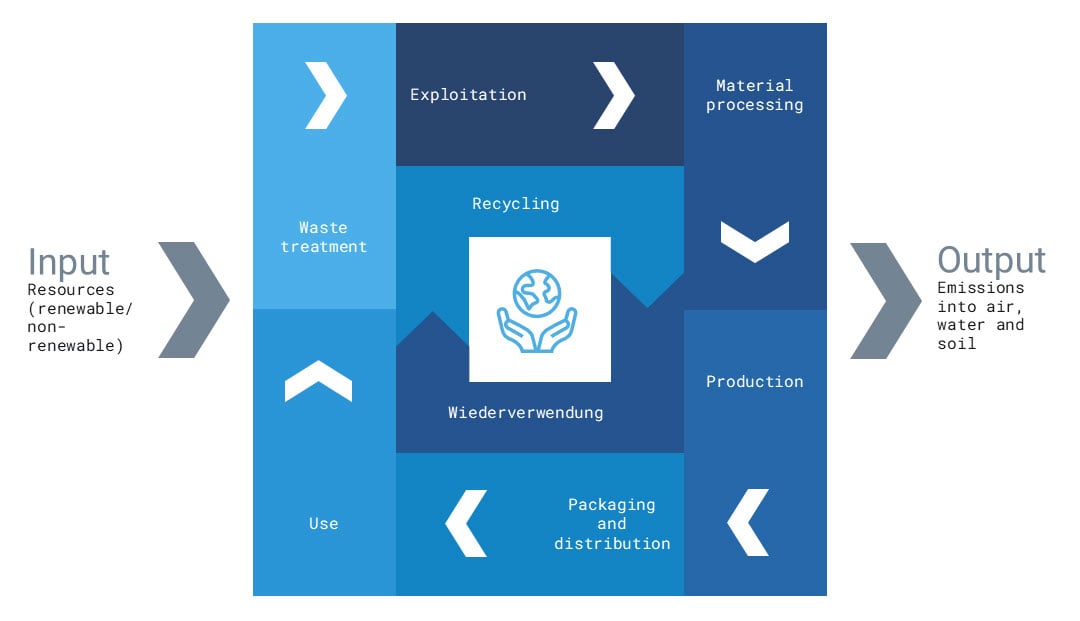- Olga Schmidt
- 12.12.25
- 2 min
- Success factor sustainability
Your contact person
Shashank Goyal
Life Cycle Assessment (LCA) is a quantitative assessment method that evaluates the resources used by a product or a service and the related impacts on human well-being and the climate over its life cycle.
An LCA can assist organizations in exploring the possible impacts of their goods and services. For instance, an LCA of tea may consider the water and land use for growing the tea leaves, the energy demand for making tea bags, the transportation effects of distribution to sellers, the energy needed to boil the water, and the ecological effects of disposing the tea bag. By taking this holistic approach, hot spots/environmental drivers along the entire life cycle can be identified.

A Life Cycle Analysis utilizes a range of information to assess the whole life span of a product/service. The assessment gives an insight to effects such as GHG emissions, water footprint, land use, or non-renewable energy consumption and the phase of the life cycle that is responsible for the greatest impact (e.g. raw material exploitation, material processing, or use). Organizations can use the results as a basis for decision-making to optimize their value chain and inform customers about the potential ecological impact of their product.
A Life Cycle Assessment can be separated into four phases:
There are numerous benefits of executing an LCA study. It enables organizations to:
As researchers, we have confidence in the information-driven dynamic. We use Life Cycle Assessment to illuminate your knowledge regarding your product/service from the very beginning with respect to ecological impacts.
We look forward to sharing our expertise with you. Simply enquire about our service by writing an email. You can find out more about our sustainability consulting here.
Author: Shashank Goyal

Your contact person
Shashank Goyal
EurA AG
T- 079619256-0Max-Eyth-Straße 2
73479 Ellwangen
info@eura-ag.com